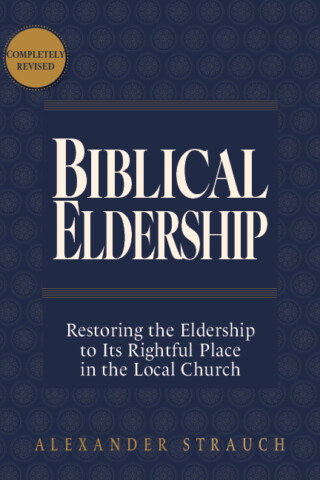by Tim Challies; INFORMING THE REFORMING; June 21, 2024

A few days ago I happened upon the page of an especially mega-sized megachurch. The church is about to undergo a leadership transition from an older man to a younger one and a page on the site lays out the process through which this new pastor was chosen. I read with a morbid kind of fascination as it told about personality testing, leadership evaluations, compatibility assessments, and much else. But I couldn’t help but notice that it said not a word about doctrine, beliefs, or the ability to understand and teach the Word of God. It may as well have been a corporation hiring a CEO. In fact, I rather suspect that’s essentially the long and short of it.
Biblical Eldership
Alexander Strauch

There are few responsibilities more necessary and more sobering than the responsibility of choosing elders (or pastors—for our purposes, let’s understand the terms to be synonymous). Yet there are few responsibilities Christians seem more likely to mishandle. Where the Bible makes clear what a man ought to be if he is to serve as an elder, we like to do it our own way, to assess him by our own criteria. And the cost is immeasurable. The church of our day is plagued by unqualified leaders.
Many years ago, Alexander Strauch released a groundbreaking book on the topic: Biblical Eldership. This year he has released a substantial revision that both updates and expands it. Importantly, it now considers recent scholarship and addresses contemporary concerns. In my view, it has made the best book on the subject still better.
Strauch is nothing if not methodical. He moves slowly and deliberately, beginning with the importance of restoring eldership as it was understood and described in the New Testament. He is a staunch advocate of plural eldership—of a group of men who lead the church as equals. After the opening section, he begins an in-depth examination of the biblical data related to eldership. Twelve chapters in he turns to an extended look at the qualifications of character that must be present in those who would serve as elders, whether vocationally or non-vocationally. Because his specific concern is qualified leadership, this section consumes the majority of the book. Toward the end, he turns to the responsibilities of a congregation to love, honor, and obey the elders God has raised up to lead them.
Though I had read the book in the past, I was both blessed and challenged to read it again in its new edition. And I think I did it in the best way by reading it alongside some other men and having regular Zoom calls to discuss, analyze, and apply it. It helped me now as it did in the past. I recommend Biblical Eldership: Restoring the Eldership to Its Rightful Place in the Local Church as near-essential reading for any man who is already an elder or who aspires to be one in the future.
